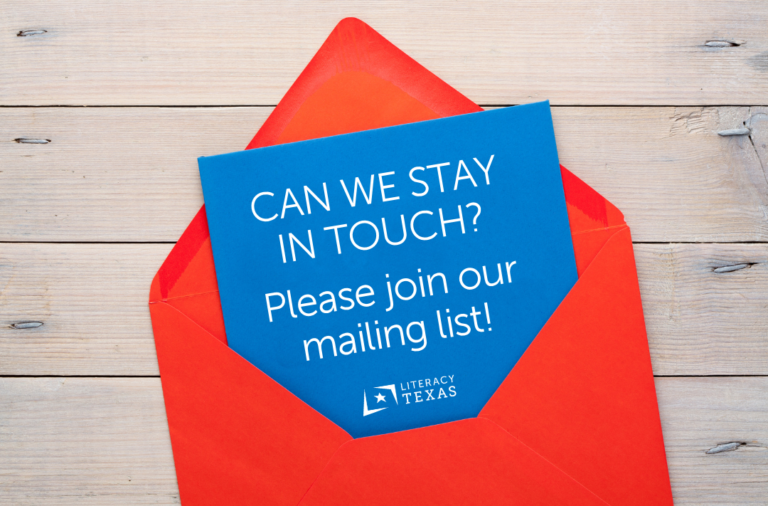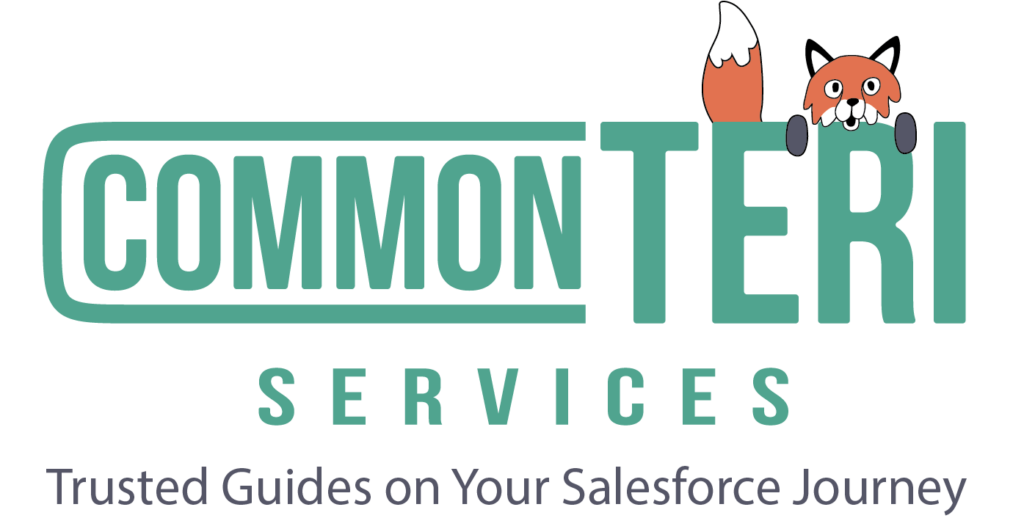This is a guest post by Tara Benwell, VP of Publishing at Ellii.
You can find Ellii among the exhibitors at the 2025 Literacy Texas Annual Conference.
Visual literacy is an essential life skill that complements language learning. Emily Bryson, a graphic facility expert and guest blogger with Ellii, is a strong proponent of the power of visuals. Emily frequently reminds educators how much of the information we encounter each day comes from images, symbols, signs, and diagrams.
In English language classrooms, fostering visual literacy is key to helping students navigate and understand the world around them. Visual literacy helps learners to:
- understand main ideas from pictures before reading
- grasp complex processes through diagrams
- use online platforms or apps by recognizing icons
- stay safe by interpreting signs and symbols
- analyze meaning, think critically, and discuss opinions
- inspire curiosity and exploration
- communicate creatively
- share information effectively
Did you know that Ellii originally started as a library of images? Before it was known as ESL Library—and later, Ellii—teachers subscribed to ESL Images. While teaching English in Japan, Ellii’s founder, Ben Buckwold, relied on visuals to support his lessons. When he couldn’t find the simple, engaging imagery he needed, he created his own library. You can hear the full origin story of Ellii on this episode of The Teacher Think-Aloud Podcast.
Today, Ellii is both an LMS and a content library full of ready-made lessons, courses, and visuals to keep language learners engaged, especially in those crucial emerging levels. Ellii’s Media Gallery offers a comprehensive collection of high-quality images and videos to help teachers elicit, teach, and reinforce vocabulary and grammar structures as well as spark engagement and interaction in the classroom. And the best part? The content was created specifically for ELLs.
Here are four types of visuals Ellii suggests experimenting with to elevate English proficiency:
1. Flashcards
Over the years, countless marketing experts have tried to convince Ben that the concept of a “flashcard” is outdated. However, Ellii’s founder strongly believes in classic teaching tools, including printable lessons and images, and our friends at Cambridge University Press and Assessment (CUPA) agree. At a recent TESOL session, Ventures author Gretchen Bitterlin recommended sending flashcard sets home in an envelope to help promote family literacy.
Today’s flashcards are not just printable images. Many platforms, including Ellii, offer digital vocabulary images with audio support and gamification features to go along with digital (or printable) lessons. At Ellii, flashcards are created specifically for English learners by real illustrators who understand the importance of simple, iconic imagery. Teachers can edit the text that goes with these 5,000+ images, making them a practical tool in bilingual programs or for leveling vocabulary up or down in a multilevel setting. Teachers can even get creative and make their own conversation question sets!
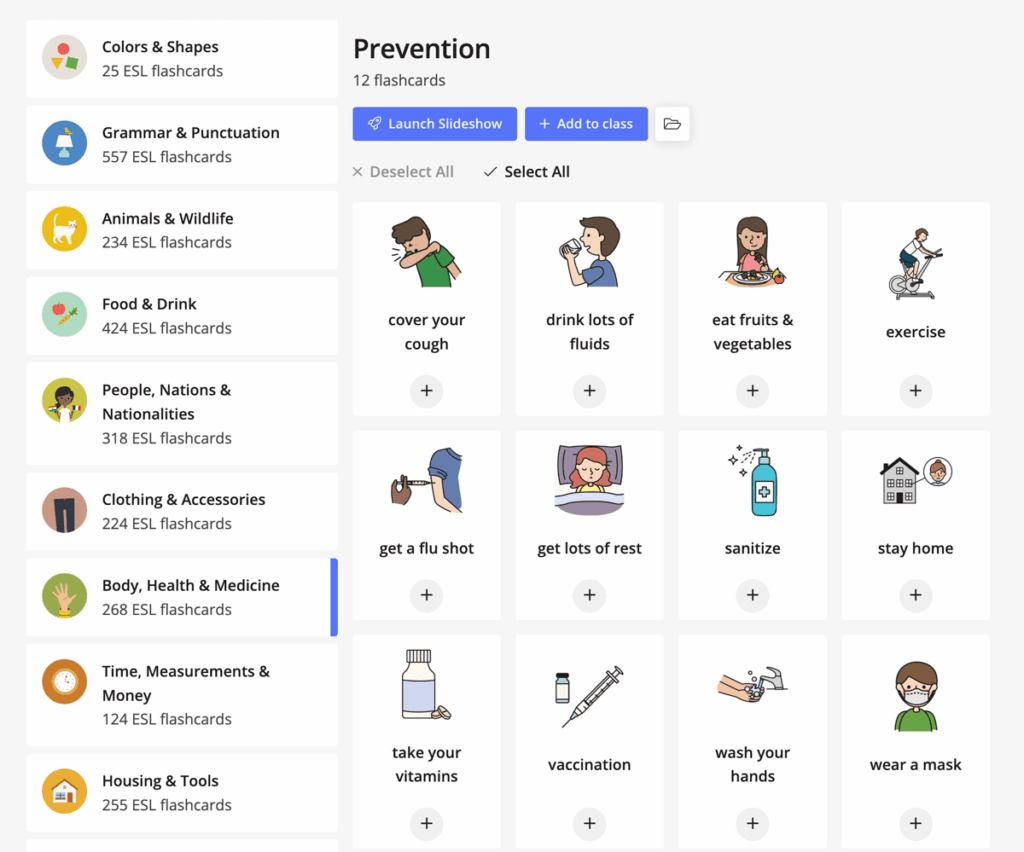
Flashcard Library on Ellii
2. Photo Prompts
Why do you think the popular Ventures series starts each unit with a scene called The Big Picture? CUPA author Donna Price often pulls out these detailed image scenes during teacher training sessions to reinforce the power of an image in eliciting language. Each Big Picture scene includes a critical incident, activating students’ prior knowledge and creating opportunities for thematic discussion.
Ellii does something similar with its That’s News to Me section using real photos or videos from The Associated Press. There is also a full section of Photo Prompts that can be used for a variety of activities from vocabulary building to critical thinking. As Emily Bryson points out on the Ellii blog, “Using just one image, students are prompted to describe the photo, make predictions, research the history… explore reasons” and more.
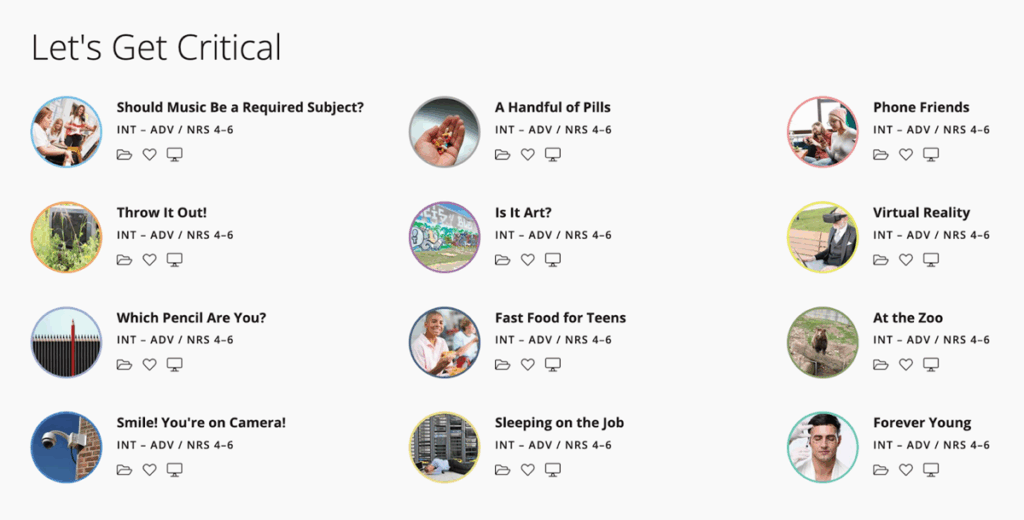
Photo Prompts on Ellii
Language Scenes are a tried-and-true method for eliciting vocabulary and assessing grammar knowledge, helping teachers identify new students’ levels and needs at intake. For the lowest-level learners, including adults preparing for CASAS STEPS, identifying vocabulary through visuals is something emerging learners need to practice in order to demonstrate proficiency.
3. Silent Clips & Video Lessons
“Sometimes the best way to get a conversation going is to stay silent,” says Emily. Silent Clips are a great way to introduce and review tricky words, including action verbs, emotions, and workplace vocabulary.
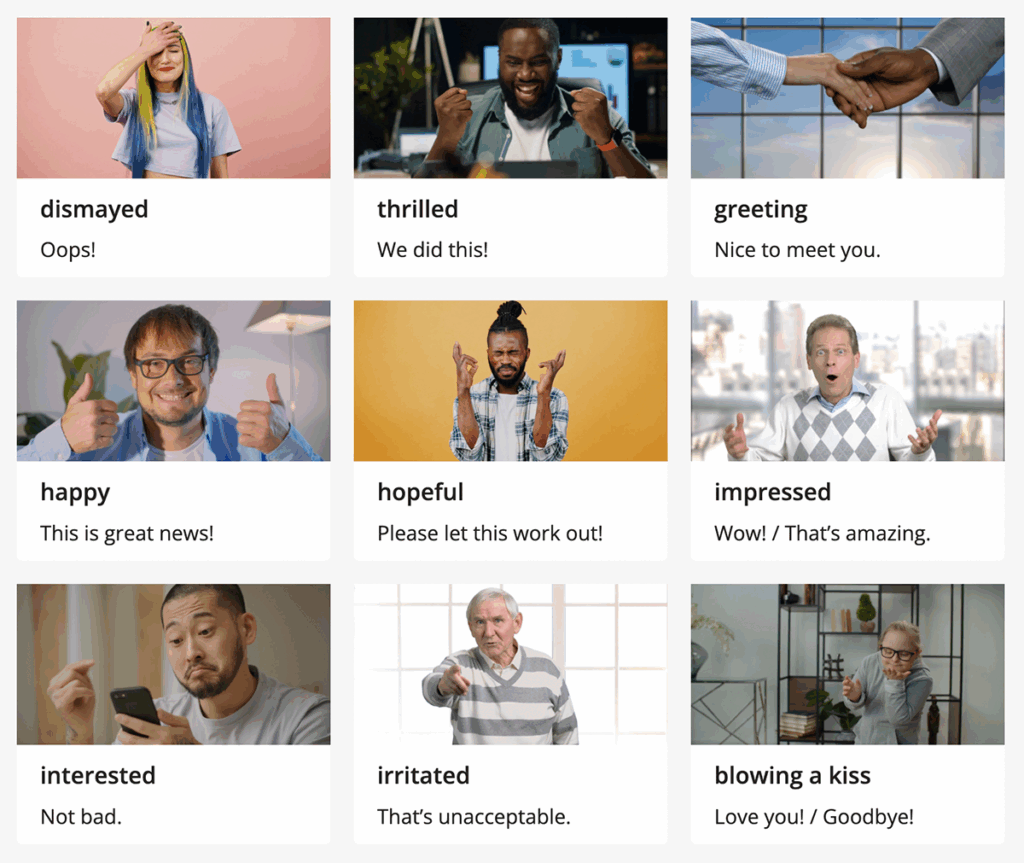
Silent Clips on Ellii
And if you want to keep your students truly engaged, video lessons are the number one recommendation, especially in those no-phone classroom zones where students are likely craving more screen time. Over the last few years, Ellii has built up its video library to include 600+ ESL videos, reinforcing everything from grammar targets and pronunciation to life and workplace skills.
4. AI-Generated Imagery
Does AI-generated imagery have a place in ELT? While Ellii is sticking with its human illustrators and photographers for now, there are countless activities that teachers and students can do to hone their prompt-engineering skills. From creating 3D dolls to spotting AI-generated errors, the language opportunities are endless. And, as Caitlin Thomas of National Geographic Learning pointed out at TESOL 2025, “AI fluency is the new digital literacy.” Have some fun! We are!

Ellii plays with AI-generated images
What Literacy Teachers Are Saying about Ellii


Get Texas literacy updates
Join our mailing list so you don’t miss any news:
- Local and national literacy news
- Conference updates
- Regional symposia
- Best of Texas
- Advocacy
- …more!

